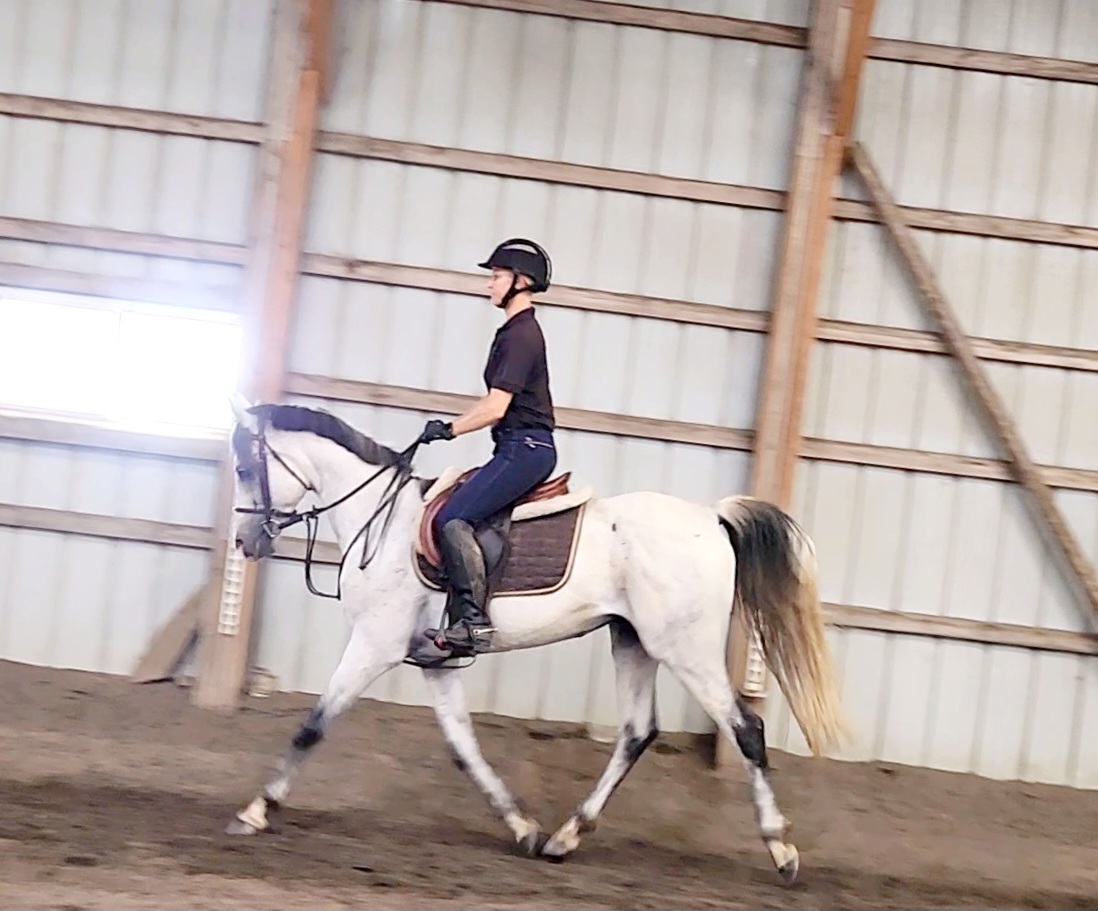Sports psychology is a funny thing–its simple to understand but difficult to put into practice. I am no expert when it comes to the field, but I do find it very interesting. We’ve all seen the really good riders compete in the big, pressure filled competitions, I’m sure I’m not alone when I say that most of them seem to have it all together; completely in control of the horse that is under them and the situation in front of them. Who knows, maybe they are. More often then not though, even the best riders will ride differently under pressure; some for the better and some for the worse. The pressure has to go somewhere.
I think one of the most interesting things to watch in good riders is the different ways in which they react to pressure. Every upper level rider, through the course of their education with horses, will have had to train their mind in some way, to some degree. Some riders will recognize this mental training more as they have had to work diligently to become focused competitors, while others may not realize they have even trained their minds at all. Regardless, every top rider has recognized the way in which they handle pressure and then devised a system for preparing for, and riding in competition accordingly. The art lies, however, in those riders not only handling the pressure, but in using it to their advantage.
There are probably about as many different reactions to pressure as there are different personalities in the world… a lot, however most people’s reactions to pressure seem to, in some way, influence their communication with the horse. Some react by losing control in their body language and becoming loose, sloppy, and not as precise as they would usually be. Others respond by getting tense and impatient in their signals, and “quick” in their sense of rhythm and pace. And still others become overly quiet and frozen in their bodies. All of these reactions affect negatively the most important part in riding, the communication with the horse. If you think about it though, those negative reactions, through training and practice, could be reversed to affect the rider’s performance in a positive way; maybe even enough so to give them an edge on the competition. For example, a person who reacts to pressure by getting quick and impatient could work diligently to channel that pressure-induced energy into creating sharper aids and higher accuracy in their movements, two desirable qualities in competition. My point is that each rider’s individual reaction to pressure, now seemingly a menace to performance, could really become a future key to success. The greatest riders of all time weren’t great because they became mirror images of other great riders; they were great because they had an individuality that made their game special and extraordinary. Instead of viewing pressure as a hindrance to performance, we should be learning how to turn it into an advantage.
With the off-season quickly approaching, it might be worth it to pick up a book about mental training like Mind Gym or In Pursuit of Excellence which were both recommended to me by top riders. Who knows, maybe that extra edge in competition you’ve been looking for could come from simply within your mind.



















